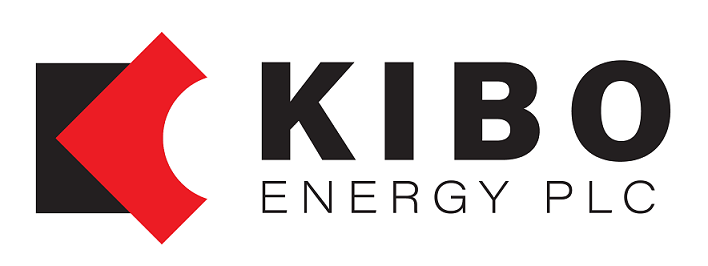
LONDON: Kibo Energy PLC (LON: KIBO) has entered into an agreement with South Africa-based Industrial Green Solutions (Pty) Ltd (IGES) to jointly develop a portfolio of waste to energy projects in South Africa with an initial target of generating more than 50 megawatts of electricity for sale to industrial users.
The Agreement, which is subject to the satisfaction of certain conditions, is in line with Kibo’s strategy to integrate renewable energy into its project pipeline, which includes three utility-scale power generation and mining projects.
Louis Coetzee, CEO of KIBO said: “This opportunity to enter the South African waste to energy market in strategic partnership with Lesedi and IGES, is a win – win for all parties. For Kibo, today’s Agreement is in line with our strategy to integrate sustainable environmentally friendly energy generation into our portfolio, which could shortly include waste to energy projects in the UK currently the subject of a due diligence investigation.
The 50MW project pipeline also positions Kibo squarely in the new and exciting renewable energy industry in South Africa and places us firmly on a programme to production and revenue in the short to medium term.
For IGES, the company gains a partner in Kibo with a track record not only in project development but also in project finance. For South Africa, the Pyrolysis technology provides a perfect solution to the disposal of plastics in the country, which up until now is high cost and subject to cumbersome procedures and under most recent legislation prohibits the disposal of plastics with a CV (Calorific Value) of more than 20 in landfill facilities.
In addition, Newco will enable South African industry to operate independently from the National Utility, Eskom and secure stable power supplies. With the above in mind, we are keen to get started at the earliest opportunity and I look forward to providing further updates on our progress.”
Kibo has entered into an agreement with IGES to jointly develop a series of Waste to Energy projects in South Africa to address the insecure energy supply environment in the country by enabling industries to operate independently.
The Agreement resulted in the establishment of Newco, in which Kibo will hold 65% for an Equity Loan contribution of R11,145,000 which will serve as project development funding for the initial project and IGES will hold 35% for an equity contribution to the value of a seven – project portfolio and development expenditure to date. Newco will initially develop a phased c. 8MW project for an industrial client, to be followed by six other projects at different sites, to a total generation of up to 50MW.
The Waste to Energy concept entails the conversion of plastic waste (provided by leading waste disposal operators) by a Pyrolysis plant, into syngas. The syngas will be stored on site and fed into gas engines to generate electrical power.
Kibo, from the commencement date of the Agreement referred to above, will fund Newco, commencing with the equity loan of R11,145,000 referred to above, whereafter funding of Newco’s approved budget will be funded through a combination of various standard commercial funding options, repayable from free cash generated by Newco from its Projects.
The first project, i.e., the project to supply power to an industrial client, is in an advanced project development stage, with access to land, key licenses and approvals acquired, and an offtake MOU and PPA negotiations concluded.
Electricity is in short supply in South Africa and despite the efforts of the management of National Utility, ESKOM, rolling blackouts have remained an integral part of the industrial landscape in the country. Furthermore, several current coal-fired power plants will come to the end of their economic lifespan in the next ten years, further curtailing energy supply. An indicative near-term energy requirement of 11,800MW was recently envisaged by the President of South Africa.
Sustained power cuts, caused by under-investment and a shortage of generating capacity, have damaged the South African economy. The response has been a belated thrust towards more power supply, from a combination of coal-fired power plants, oil and gas, wind and solar, and potentially a fleet of new nuclear power stations.
Planners are now considering the addition of independent power producers (IPPs) to the energy mix and small-scale residential generation as citizens, increasingly frustrated by load-shedding and rising electricity prices, are starting to install their own generation systems.
Electricity generation is thus becoming decentralized, and the line between consumer and producer is beginning to blur and the electricity sector is moving away from a monopolistic model. New players are taking on roles and responsibilities historically controlled by national utility, Eskom, which is made more complex given the growing number of IPPs.
In response to this context, developers and industrial users are looking to various forms of embedded energy supply. These private initiatives, generally deployed in smaller-but-more-distributed units, will form an increasing part of the South African energy landscape over time as private enterprises seek to achieve some level of independence from the national grid.
South African authorities have expanded the responsibility of a waste generator to ensure that the waste products from their activities are managed responsibly on a cradle-to-grave basis.
Secondly, the regulations continuously constrain the types of waste that are allowed to be sent to landfill. Certain plastics, for instance, can no longer be landfilled due to its high calorific value. Plastic generators therefore have to find alternatives for the disposal and/or recycling of these waste streams.
Kibo Energy PLC (LON: KIBO)
Share price
0.29 GBX 0.00 (0.00%)
17 May, 4:35 pm GMT+1 · Disclaimer

